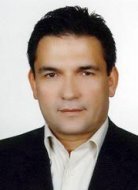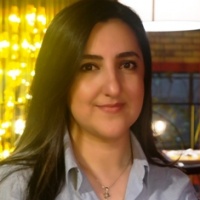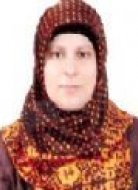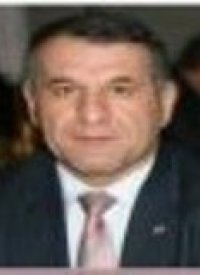Istanbul, April 17 () - Economic issues rank as the most important problem for half of Turks, according to a survey made public on April 16.
A total of 33.1 percent of those polled said unemployment ranks as Turkey’s most important problem. “This is the highest percentage I have seen for long time,” said Ali Çarkoğlu, who has been conducting similar surveys for the past two decades.
For 10.7 percent of those polled, the most important problem was poverty, while 8.2 percent said it was economic instability.
When the three inputs are combined, the outcome shows that half of Turks believe economic issues are the most important problem in Turkey, said Çarkoğlu of Koç University, who conducted the survey together with Ersin Kalaycıoğlu of Sabancı University and Eric Nisbet of Ohio University.
Some 10.4 percent ranked terrorism and national security, while 6.4 percent ranked the Kurdish problem as the most important problem in Turkey.
Surprisingly, only 3.2 percent ranked the Islamic State of Iraq and the Levant (ISIL), Turkey’s foreign policy and Syria as the country’s most important problem. In contrast, some 34.9 percent said the issue was the most important one currently facing the world.
The issue will remain the world’s most important issue in the future as well, according to the results.
Also what Turks see as relatively less of a problem currently for the country appears as an important issue in their projections for the future, as 12.9 percent of those polled ranked ISIL, foreign policy and Syria as the most important problem that awaits the nation in the future.
Strikingly, environmental issues, such as water shortages and energy, rank last in terms of importance at present, with only 0.3 percent saying it was Turkey’s biggest problem at the moment.
A slightly larger number of respondents, 6.3 percent, said it would be the most important problem of Turkey in the future, while 17.2 percent said it would become the most serious problem in the world in the future if necessary measures are not taken. The results reflect an awareness of environmental issues, albeit merely for the future, according to Çarkoğlu.
Of the 2,356 persons who were interviewed face to face, none mentioned the “headscarf issue” as an important problem for Turkey – something that was not the case in earlier surveys, according to Çarkoğlu.
Satisfaction about the quality of the media, as well as censorship in the press, depends largely according to party affiliations, the survey revealed. Some 37.4 percent of Justice and Development Party (AKP) supporters said they were satisfied by the quality of news outlets, but this figure dropped to 13.1 for supporters of other parties.
Similarly, the tendency to say there is censorship in the media is lower for AKP supporters compared to supporters of other political parties.
Again there is a significant difference in the level of discontent on censorship in the media between AKP supporters and the rest, but even among AKP supporters, there is a significant amount who are also dissatisfied with censorship in the media, according to Çarkoğlu.
While 42.7 percent strongly agree with censorship over pornographic and sexual content, 8.9 percent said they were against such measures, while a further 4.8 said they were categorically against such restrictions.
When it comes to censorship of content critical of Islam, 20.8 percent said they absolutely agreed, 28.7 percent said they agreed, while 19.1 said they disagreed and 12 percent said they definitely disagreed.
On the question of restrictions that have been brought by the government on the Internet and censorship, only 4.90 percent of AKP supporters said they were categorically against limitations, while 40 percent of opposition Republican People’s Party (CHP) replied that there were categorically against online censorship.
The same ratio was 27.50 percent for the Nationalist Movement Party (MHP) and 30.20 percent for the Peoples’ Democratic Party (HDP). Meanwhile, 52.70 percent of CHP supporters said they definitely disapproved of bans on YouTube, while just 10.20 percent of AKP supporters said they definitely disapproved of such prohibitions. This ratio was 29.10 percent for the MHP and 38.30 percent for the HDP.
Some 13.80 percent of AKP supporters said they definitely approve of bans on Twitter, versus 4.40 percent for the CHP, 2.90 percent for the MHP and 2.80 percent for HDP. Those who said they definitely disapproved of the prohibition were 9.70 percent for the AKP, 56.40 percent for the CHP, 31.40 percent for the MHP and 37.40 percent for the HDP.




















